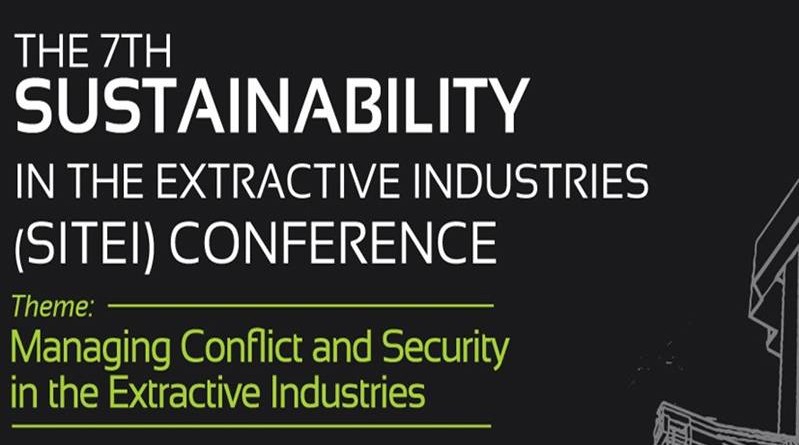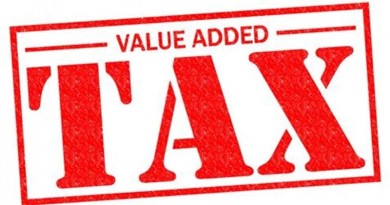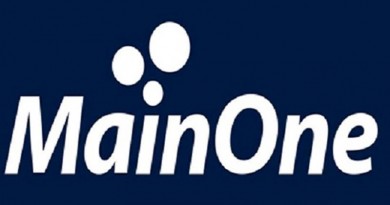Communique of the 7th Sustainability in the Extractive Industries (SITEI) Conference – Managing Conflict and Security in the Extractive Industries
Resolutions to the causes of conflict and security breaches in the extractive sector and the effects on our collective and individual lives, were the talking points at the 7th Sustainability in the Extractive Industries (SITEI) Conference held at the Shehu Musa Yar’adua Centre, Abuja on the Monday, 21st and Tuesday, 22nd of May 2018.

While underscoring the crux of the 7th SITEI Conference, themed Managing Conflict and Security in the Extractive Industries, Founder of CSR-in-Action and Convener of SITEI, Bekeme Masade, in her welcome address decried how our once peaceful and tranquil extractive communities have transmogrified drastically to being synonymous with violent contestations and perpetual unrest; a sorry situation that continues to slight our national image and frustrate national development. In her words, “neglecting the challenge of conflict and security breaches in the extractive industries will continue to have dire consequences on our individual and collective lives.”
While giving his opening address, Honourable Minister of State for Petroleum Resources, Dr. Ibe Kachikwu (represented by Dr. Isa Baba, Director, Oil Services, Ministry of Petroleum Resources) stated that conflict and security breaches are synonymous with resource extraction. He noted how imperative it is to create effective frameworks to creatively manage conflict across the extractive sector. He called for broader engagement among all stakeholders and assured that bringing an end to conflict and security breaches is a top of the agenda priority for the current administration of President Muhammadu Buhari.
The robust line-up of speakers, panellists and special guests included heads of government, business, host communities and civil society organisations, including Waziri Adio, Executive Secretary of NEITI; Simbi Wabote, Executive Secretary of NCDMB; Nere Teriba, Managing Director, Kian Smith; Austin Onuoha, Director, African Centre for Corporate Responsibility; Barrister Omude Ngozi Ochonogor-Ochibe, Delta State Women Leader, Host Communities of Nigeria, Delta State Chapter; Mallam Bello Rabiu, COO Upstream, NNPC; Esimaje Brikkin, General Manager, Policy, Government and Public Affairs, Chevron Nigeria Ltd; Architect Nnimmo Bassey, Founding Director, HOMEF; Fr. Kevin O’Hara, Founder, Stakeholder Alliance for Corporate Accountability; Dr. Mina M. Ogbanga, Founder/CEO, Yusuf Lamuwa, Chairman, Miners Association of Nigeria, FCT Chapter; Commandant Alpha Ikpeamonwu, Head, Solid Minerals Defenders Department, NSCDC; and Eva Kouka, Programme Officer, Ford Foundation.
The Challenges
Some of the causes of the scourge of conflict and security breaches ravaging Nigeria’s extractive sector and stalling national development were highlighted to include the following:
- Environmental degradation which impacts negatively on the lives and livelihoods of host community members
- Poor stakeholder management and the marginalisation of major stakeholders – women and youth – in decisions that affect them directly
- Non-alignment of interests and selfishness on the part of all stakeholders – oil companies, government and host communities
- Uneven distribution of gains that accrue from extractive operations
- Lack of transparency and accountability in the extractive industries
- Inadequate and inconsistent channels of communication
- Government’s use of force as a response to agitation in extractive communities
- Non-implementation of existing policies and legal enactments
- Non-performance of government regulatory bodies due to paucity of funds
- Incentivisation of violence.
SITEI 2018 Recommendations
To counteract the challenges faced by the sector, key recommendations from delegates were that:
Stakeholder Engagement: The importance of constant and committed stakeholder engagement cannot be overemphasised in the pursuit of sustainable peace. It is imperative that extractive companies and governments ensure that host communities are kept in the loop when decisions impacting on said communities are taken. Carefully identifying, engaging and consulting host community members and giving them a seat at the decision-making table is a credible way of fostering and reinforcing mutually rewarding stakeholder relationships.
Fair-Sharing: The extractive sector generates over 70% of the Nigerian government’s revenue, and host community members are aware of the wealth that comes out of their land. It is unjustifiable then that the region wallows in poverty and development deficit. To stem the tide of violent confrontations in the region, therefore, it was recommended that government, with the support of oil companies, share the gains of extraction impartially to drive sustainable development in host communities, as poverty is a sure trigger of unrest. If host communities own shares in extractive companies, they are sure to guard extractive installations jealously.
Transparency and accountability: The opacity and lack of accountability that envelopes activities in the extractive industries cause distrust among stakeholders. This distrust breeds suspicion which triggers disagreement and violence. Ingraining transparency and accountability in all facet of activities in the extractive industries is the underlying bedrock upon which the pillars of peace and mutual understanding rests.
Integrity: Pervasive throughout the conversation was the importance of integrity in all dealings. All stakeholders need to come to the table with interests beyond their individual or collective selves. Mechanisms highlighted in ‘transparency and accountability’ can be used as support structures to aid integrious interactions.
Strong governance structures: As we work assiduously to resuscitate the mining industry, it is of utmost importance for our nation to lay down strong, seamless and transparent governance pipelines; the nuts and bolts of sustainable development in any industry. Improved accountability that is a direct result of building viable governance structures will bolster investor confidence, attract foreign direct investment and guard against the mistakes that have beclouded the oil industry. Government regulatory bodies, ministries, departments, agencies and parastatals often cite paucity of funds and lack of capacity as a reason for underperformance. For them to be able to discharge their duties efficiently and effectively, government should fund regulatory bodies and MDAs generously for them to be empowered to carry out their duties with deft.
Inter-generational capacity: For development in the extractive industries to be sustainable, young people must be wholly involved and empowered to pass on the baton to the next generation. It, clearly behoves on present leaders to give young people a seat at the table and it is the duty of young people not to betray the trust reposed in them.
Effective channels of communication: Building viable vertical and horizontal channels of communication, giving brands a human face, maintaining genuine cordial relationships with stakeholders and listening attentively to their yearnings, are the surest routes for oil companies and government to manage expectations and proactively curb violent confrontations for using force as a peace broking measure only breeds hatred. Awareness creation for what is tenable is linked to this resolve. Awareness creation for government policy with regard to exploration, ownership of land, rights of communities, health and environmental hazards and avenue for community involvement ought to be agreed are opp
Review and implement existing policies and legal enactments: Laws and regulations that clash and or have become redundant should be reviewed so as to reflect present realities. Moreover, it is not enough to enact good laws and policies; these laws and policies should be implemented with fervor.
Process fine-tuning: Clearer and well-thought out processes for mining processes such as procurement of mining leases, development and implementation of a Community Development Agreement, tracing of remittances from business to government through a streamlining of collection point(s) and institutionalising an overarching monitoring body
Reduced inequalities: Women play a pivotal role in the processing of minerals but are underpaid for the essential services that they render. Certain deep-seated socio-cultural prejudice also contributes to the marginalisation of women in the mining industry. It is imperative that women, being key stakeholders in the industry, are given a voice and are equitably remunerated for the work they do because as long as women are treated unjustly, peace and progress in the mining industry will remain elusive.
Impact assessment: Resource extraction more often than not devastates the environment, causes health hazards and precipitates forced migration which push host communities to rebel. It is therefore sacrosanct that the risks associated with mining in a particular environment are examined and that we put in place proactive palliative measures to manage emergency situations.
Alternative dispute resolution: Litigation and arbitration in law courts are known to drag for eons and these place a lot of emotional and financial strain on the warring factions. A viable option is, therefore, to explore alternative dispute resolution as a strategic, faster and more amicable way of resolving conflicts.
Citizen and CSO participation: The gains of the mining and oil and industries are owned by all citizens. Delegates determined that the onus, therefore, falls on all citizens and civil society organisations to put government, regulatory bodies and mining companies on their toes. Youth and women groups who play important roles but are often marginalised in the scheme of things need not wait to be invited to the discussion table; the time for them to demand and take their rightful position is now.
…………………………………………………………………………………………………………………………………………………………..
Action Points
As an organisation that is decidedly committed to driving sustainability in the African sub-region, our work at CSR-in-Action does not end with stimulating discussions among key stakeholders. We have taken it upon ourselves to keep working on tangible solutions that will douse conflict, manage security, promote sustainability and unlock the vaults of Nigeria’s extractive prosperity. Our resolutiosn for 2018/2019 are to:
Design Community Engagement Framework through intense community engagement: For the rest of 2018, we will work on fine-tuning and pushing the Sustainable Energy and Extractive Principles (SEEP) while working with the Facility for Oil Sector Transparency and Reform (FOSTER) to develop a community engagement for the oil and gas sector document that will bolster stakeholder engagement, transparency and accountability, as a tactic to manage conflict and security. Conversations will also commence with mining stakeholders.
Restructure SITEI Working Group: We will reinvigorate our SITEI Working Group and create sub-groups in order to promote engagement of more extensive stakeholders across states. We will consider regional or state-level convening.
Encourage Mineral Resources and Environmental Management Committees to include non-profits: We will work assiduously to ensure best practices in the exploration of the Solid Minerals deposits of states. Key would be advocating that said committees have CSO organisations as sitting members.
Make recommendation to NASS on PIGB and PIHCB: The Petroleum Industry Governance and Host Community Bills whilst much-needed and robust, will yet need more contributions from key and concerned stakeholders before they can be satisfactorily passed. CSR-in-Action through our Working Group will send our opinion on areas of improvement to the legislature.
CSR-IN-ACTION
Partners
CSR-in-Action Advocacy thanks its partners of SITEI 2018: Nigeria Extractive Industries Transparency Initiative (NEITI), Federal Ministry of Petroleum Resources (FMPR), Federal Ministry of Mines and Steel Development (FMMSD), Zenera Consulting, Ford Foundation, Petrolex and Access Bank Plc.




